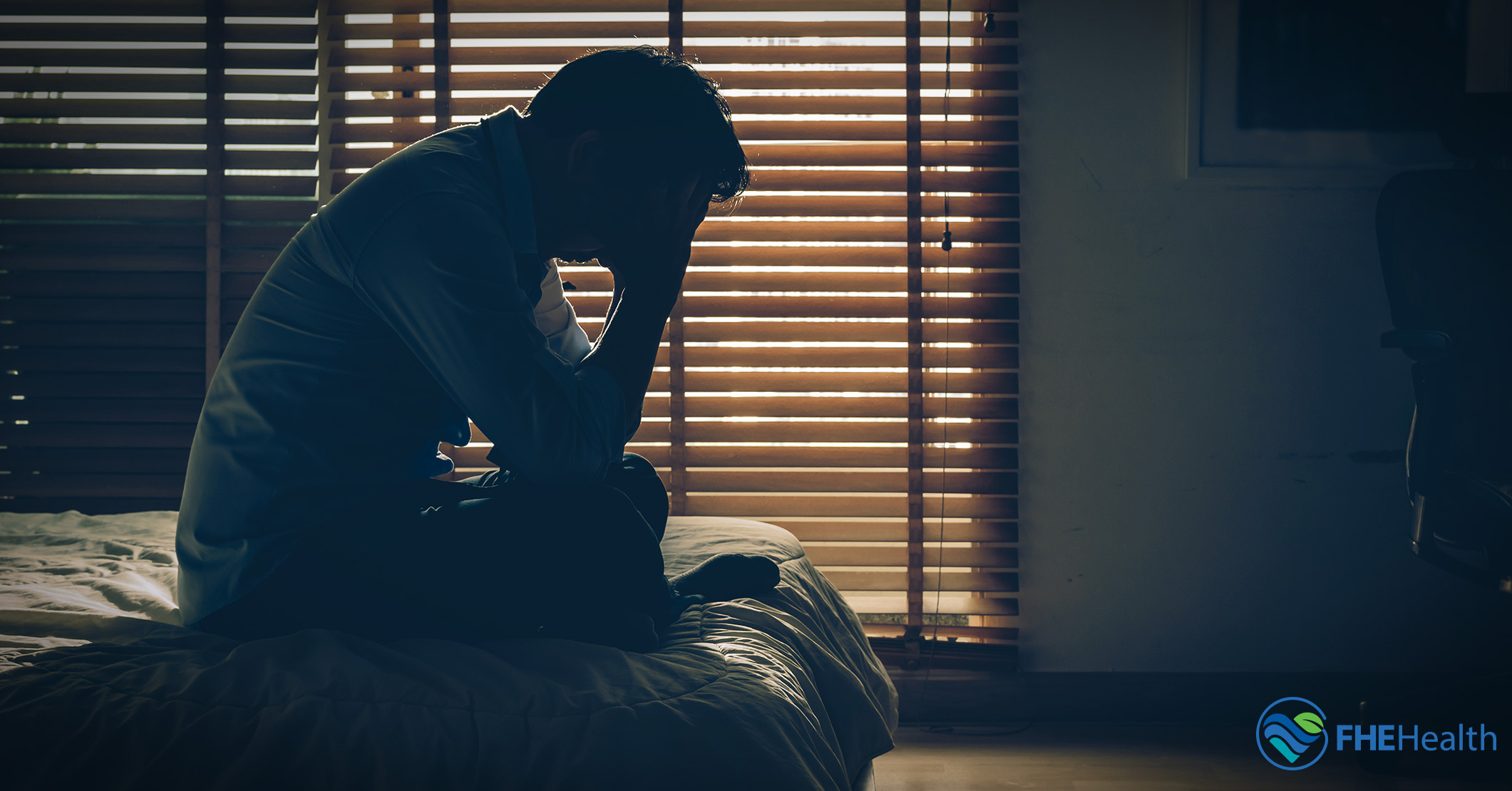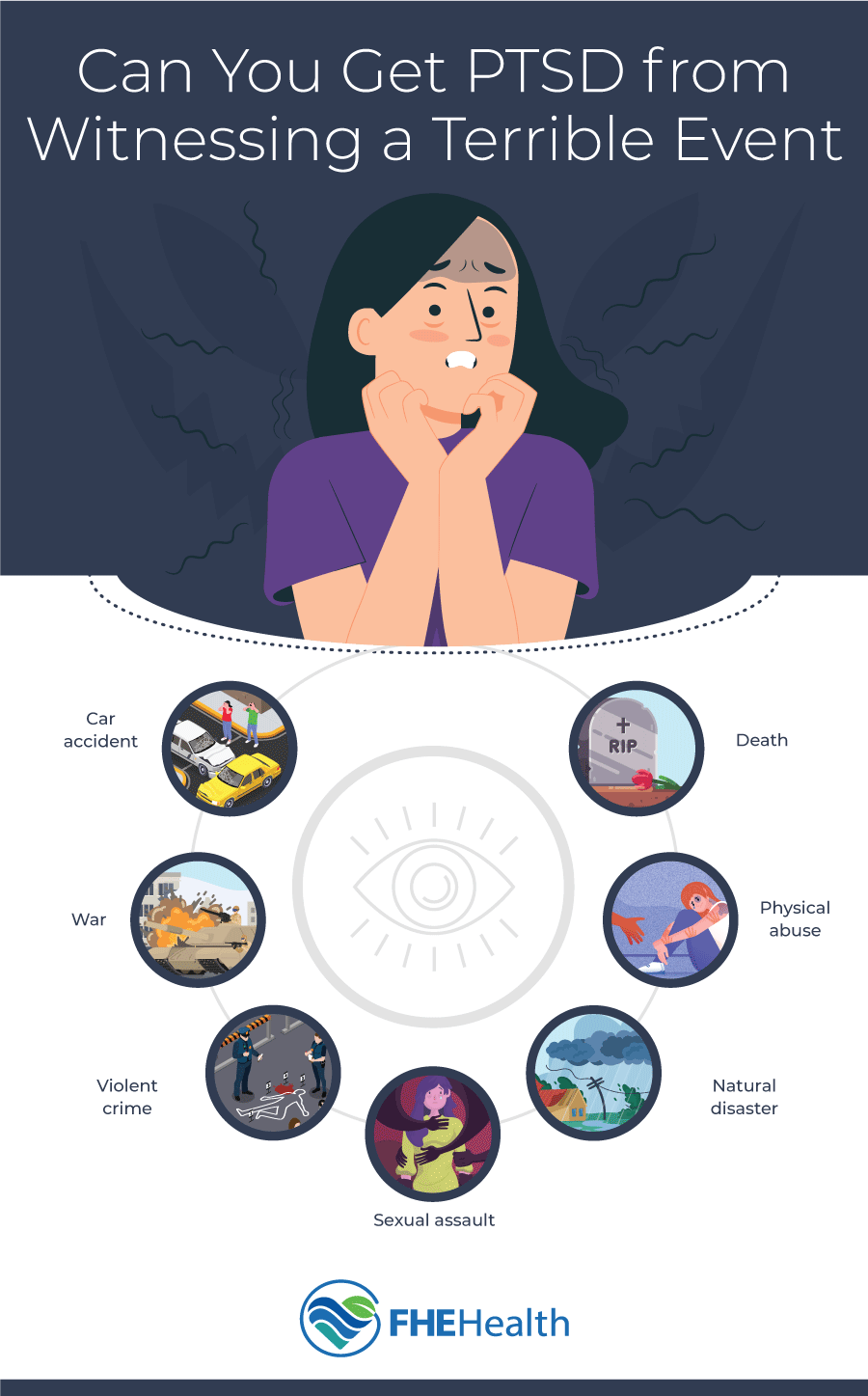
Post-traumatic stress disorder (PTSD) is a condition that many people misunderstand, largely thanks to some persisting myths and misinformation. Traumatic events leave people feeling sad, anxious, frightened, or even guilty. When these feelings persist for long periods, it could be PTSD.
While most individuals associate PTSD with sexual assault, military combat, or some other violent situation, PTSD can originate from a variety of events and experiences. Many people don’t realize that you don’t need to directly experience trauma to develop PTSD. Even witnessing a terrible event can have long-lasting effects on the mind and body.
There also exists a form of PTSD—called “secondary PTSD”—that stems from hearing other people discussing their trauma or experiencing the events secondhand through news coverage or similar types of exposure.
There is no one “real” way to develop PTSD, and the triggering incidents are unique and varied. Anyone can develop PTSD, regardless of age or gender.
In this article, we’ll dive into the different forms of PTSD and how they form, as well as what you can do to manage them.
Witnessing Traumatic Events
The modern definition of PTSD was only added to the Diagnostic and Statistical Manual of Mental Disorders in 1980. We undoubtedly have more to learn about the condition and how it develops. Though our understanding of PTSD and its triggers may be far from complete, we have made massive progress over the last few decades.
Most notably, medical experts have embraced the idea that witnesses to traumatic events can also develop PTSD, not just direct victims. All that matters is exposure to trauma, whether that’s in the form of direct experience, witnessing the event, or even learning about it through a friend, family member, or close associate.
In animal studies, researchers found that visually experiencing a traumatic event led to brain changes, anxiety, and long-term memory impairment consistent with the symptoms of PTSD. There is also a substantial amount of research on how witnessing domestic abuse affects children—especially as they age.
Psychological Impact of Trauma
Trauma affects everyone differently. The psychological impacts can vary dramatically from person to person. However, there is almost always some form of damage, even if you don’t develop PTSD.
You may re-experience the trauma over and over in the form of intrusive memories, flashbacks, or nightmares. Some people experience extreme physical symptoms at the mere reminder of something related to the trauma.
Because of this, many people begin to show signs of avoidant behaviors. It’s common to avoid activities, people, thoughts, and feelings that remind you of the event. Sometimes, you may even have some level of memory loss as your brain tries to protect you from the stress. Avoidance symptoms can also involve numbing sensations, such as feeling detached from the world around you. However, studies show that the more a person tries to avoid their trauma, the more likely they are to have PTSD.
Many people also develop other mental health issues. Symptoms of depression and anxiety are the most common. These issues can begin to feed into each other, creating a terrible loop where trauma worsens depression, which worsens anxiety, which increases the fear of trauma, and so on.
Many people will slowly recover from the long term effects of trauma. However, those who don’t heal may develop PTSD. Roughly six percent of adults in the U.S. will develop PTSD at some point in their lives. In 2020 alone, roughly 13 million Americans had PTSD diagnoses.
Understanding PTSD
As we have mentioned a few times, PTSD is complex. Even with all our medical advancements, we still aren’t entirely sure why some people develop PTSD and others do not. Some of the more supported theories suggest that PTSD stems from a mix of:
- The amount of trauma you’ve experienced in your life
- Your overall temperament
- How your brain regulates hormones and other chemicals, especially in response to stress
- Family history of mental health issues
- Lack of a support system
- Genetic variations
What we do know is that PTSD is a severe psychiatric condition that occurs when people experience, see, or hear about events that are emotionally or physically harmful, either to themselves or those they are close to. From natural disasters and serious accidents to childhood bullying and domestic violence, there are an endless number of situations that can lead to PTSD.
Physiologically speaking, PTSD often occurs when an event overloads our adrenaline response, literally forming new neurological patterns in the brain. These patterns persist long after the event has passed, continuing to cause problems. Most notably, triggering the fear response even when there is no danger present.
Secondary Trauma and PTSD
Secondary PTSD, also known as secondhand PTSD or PTSD by proxy, is one of the least understood and most under-recognized forms of the condition. Essentially, someone else experiences trauma, often developing PTSD as a result. Then, through interacting with this individual, someone else also develops symptoms of a trauma-related disorder.
Sometimes, this occurs with caregivers and is associated with compassion fatigue. To help others, humans use empathy to relate to problems. However, doing this too often or too strongly can result in the brain reacting as if it is experiencing that same trauma. This, along with the additional stressors of caregiving, can lead to PTSD.
Alternatively, some people respond to terrible events they see or hear about through news programs or social media and develop symptoms.
These forms of PTSD may need the same type and level of care that PTSD from firsthand trauma requires.
Coping and Support
Living with PTSD can be hard. Its effects can reach parts of your life that you might never expect—from your mental health to your physical health, your work, and your relationships. However, learning coping strategies isn’t only possible, it can provide you with a renewed sense of hope and control.
One of the first things everyone should recognize is that PTSD often causes people to isolate themselves. Sometimes you may not even realize you’re doing this until other symptoms become far worse. Try your best to reach out to those who care for you. Even a small amount of social support can be life-changing.
You can also utilize a variety of techniques to help with your symptoms. Activities as simple as going for a walk when things feel unbearable or just meditating and finding a sense of peace can provide relief.
Many people also like to reach out to nearby communities, such as other people with PTSD, to share their experiences and discuss what helps. Having people there with the same issues as you can not only validate your feelings but also open you up to how others were able to heal and grow.
Seeking Mental Health Resources
Ultimately, attempting to recover from PTSD on your own is difficult—sometimes even impossible. There is no shame in reaching out to a professional for help. They have the tools and experience to allow you to heal at your pace. All forms and sources of PTSD are valid and deserve the same amount of care. No matter what your situation is, you deserve care.







